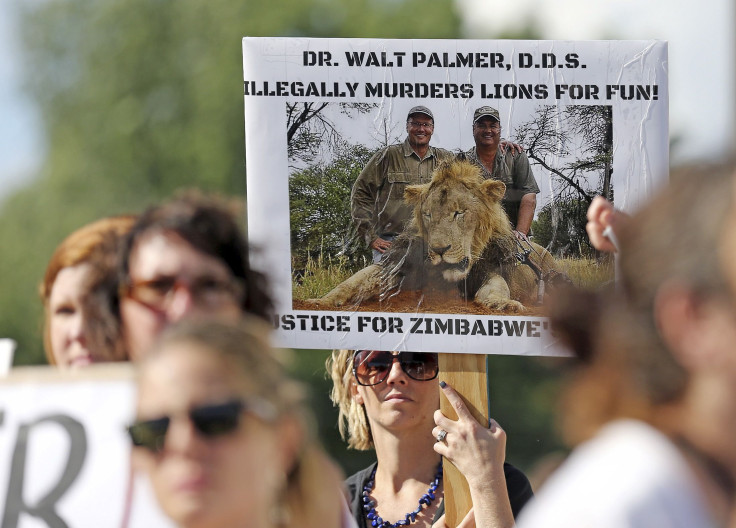Zimbabwe Lifts Hunting Ban 10 Days After Imposing Moratorium For Killing Of Cecil The Lion

Zimbabwe has lifted a hunting ban only 10 days after imposing it following the killing of Cecil, the country’s most-prized lion, NBC News reported Monday, citing officials. The country had suspended big-game hunting in the area surrounding Hwange National Park where Cecil was killed by Walter Palmer, a Minnesota dentist, with a bow and arrow.
According to Zimbabwe Parks and Wildlife Management Authority, the ban has been lifted across most of the area around the park except the farmland where Cecil was killed, as well as several other areas where animals were illegally killed. The remaining bans will be reviewed after the trial of a local hunter, who allegedly helped Palmer kill Cecil.
The lifting of the ban followed a meeting between the parks authority and representatives from the hunting industry last week, parks spokeswoman Caroline Washaya-Moyo told NBC News, adding that all hunts would now be monitored under stricter rules. Hunters will now be accompanied by national parks staff at all times, and will be required to submit detailed reports of the kill.
Cecil’s death led to intense social media outrage against Palmer, who allegedly paid $50,000 for the hunt in early July, and days of protests outside his dental clinic. Palmer, however, argued that he had the necessary permits for hunting lions. On July 31, Zimbabwe called for the extradition of Palmer from the United States to be tried for poaching.
“We are appealing to the responsible authorities for (Palmer's) extradition to Zimbabwe so that he can be made accountable for his illegal actions,” Agence France-Presse quoted Zimbabwe’s environment minister Oppah Muchinguri as saying.
© Copyright IBTimes 2024. All rights reserved.












